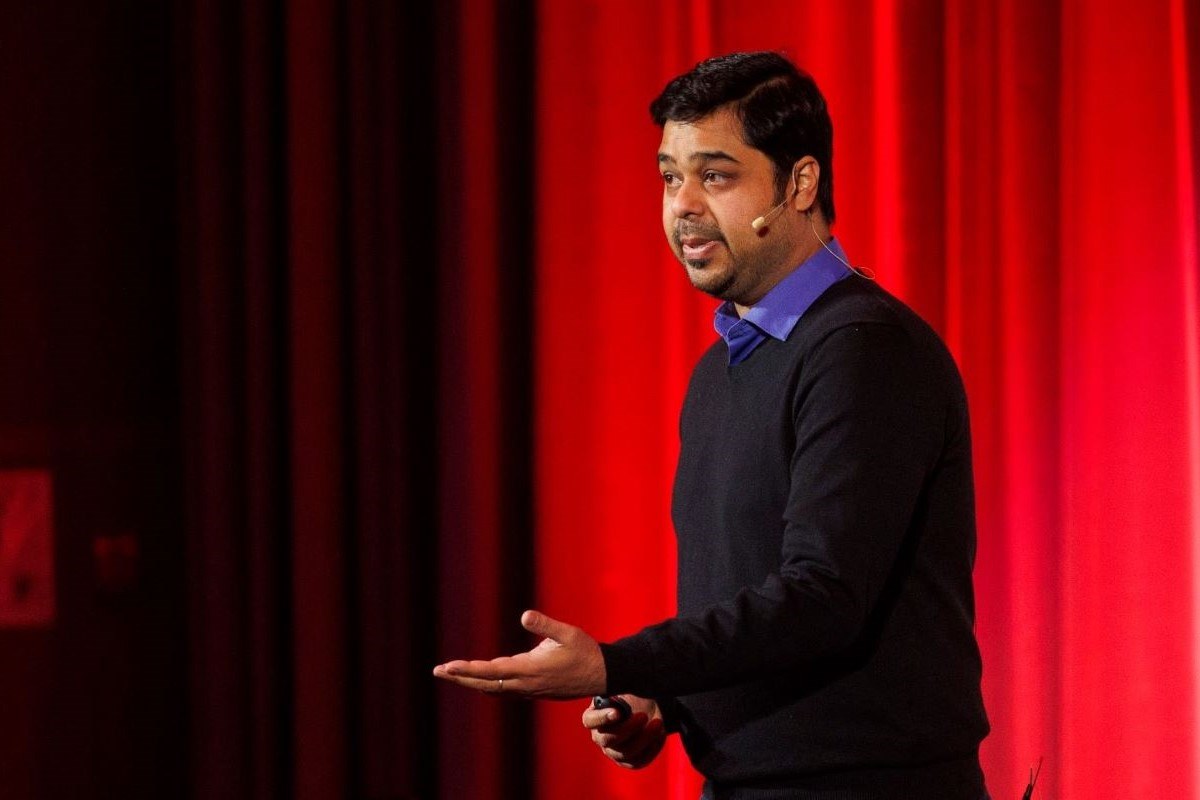
Working with communities to explore the science and practice of sustainability
Saurabh Biswas is a sustainability scientist and energy systems engineer studying societal transformations and sustainable development linked to energy transitions. His research explores the energy-poverty nexus among marginalized and vulnerable groups of people.
By Erica Schindel, USask Communications Specialist“Wickedly complex sustainability problems usually arise because of sociotechnical failures that aren’t anticipated and addressed in good time,” said Dr. Saurabh Biswas (PhD), USask Living Skies Postdoctoral Fellow. “On the flip side, sustainability solutions that are heavily based on technology or infrastructure, ignoring the human and societal context, usually fail and create significant consequences that deepen problems.”
“Sustainability problems often occur out of insufficiently consulted and poorly collaborated solutions—think of energy, food, biodiversity loss, poverty, climate change, and more. Not only are they connected, but they are connected in different configurations, depending on where they occur and who they impact. Solutions that are not sensitive to the connectedness, place, or people configuration, fail to solve the problem and give rise to spillover that deepens the sustainability problem.”
Biswas has worked collaboratively with community organizations, grassroots entrepreneurs, university partners and international development agencies in seven countries to co-develop research-based programs to leverage renewable energy technology for local sustainable development. Prior to USask, he worked at the Pacific Northwest National Laboratory, conducting multi-disciplinary research for the US Department of Energy. He also taught courses on energy justice and grassroots energy innovation at Portland State University and Arizona State University.
“My research is driven by problems societies face on an everyday basis. Of course, climate change is a major problem, but along with it comes multiple problems in the social, environmental, economic, and cultural lives of people. My work is highly relevant to that nexus of food, energy, water, and reconciliation in the province of Saskatchewan. So, working with community partners in Saskatchewan gives me the opportunity to make knowledge-based, evidence-based advances in crafting real-world solutions with my partners.”
Biswas believes that the interdisciplinarity nature of the Living Skies Postdoctoral Fellows Program and how it is hardwired into its structure, has enhanced his experience, training, and scholarship as a postdoctoral fellow. This, combined with his exposure to industry and community partners, has enhanced his understanding as a sustainability scientist.
“The Living Skies fellowship has enabled me to advance frontiers of knowledge on the science and practice of sustainability. With colleagues and external partners, I have developed robust research projects intersecting contemporary social issues and new technologies, including small modular reactors. This work is as locally unique to the needs of remote and northern communities as it is globally connected—a truly bold undertaking.”
Visit USask’s Living Skies Doctoral Fellows Program website, for more information on the program, the postdoctoral fellows, and their research. To learn more about Biswas’ research listen to his TEDx talk.

